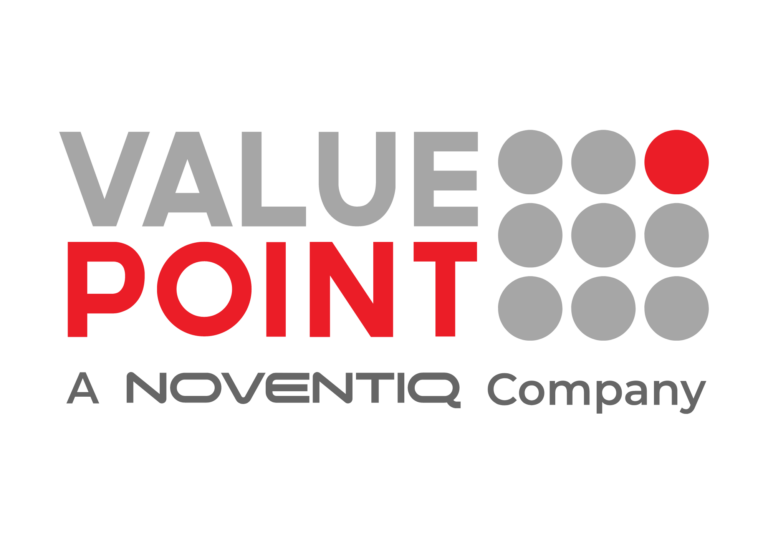Maximize Your Infrastucture Support
System integrator companies in India
Optimize IT Infrastructure for Greater Business Agility

Free Consultation
System integrator companies in India
It’s normal practice to use multiple IT elements for various jobs. However, as business operations develop, organizations risk being overrun by numerous ad hoc instruments that are unable to exchange information and cooperate—system integration steps into the rescue at that point.
This blog will look at current approaches and solutions for combining various components of operating systems into a unified platform, including crucial assimilation phases and the function of system integrator companies in India.
The technique of joining many sub-systems (elements) into a cohesive, more complex system that works as a single unit is called system integration. System integration is often described as the process of connecting disparate IT networks, processes, and/or technology that can make them all operationally compatible when referring to software solutions.
It has been about 30 years of its establishment, and in less time, Value Point Systems has established itself as one of India’s top 5 system integrator businesses.
IT managed Services Offerings
What is system integration, as performed by system integrator companies in India?
System integration is the act of fusing hardware and software components into a single, coherent architecture, allowing each component to function independently. This is frequently called software integration or IT integration. Improvements in profitability and operational excellence are the primary drivers behind system integration in enterprises. Using integration, it is intended to “speak to each other” across the firm’s multiple IT systems, accelerating data flows and lowering operating expenses. However, system integration can be used to link not just internal systems inside a company but also external partners that the firm engages in business with.
Value Point Systems excels as one of India’s leading system integrator companies. It delivers Next-Gen Digital Infrastructure Solutions that enable corporate transformation journeys via its consultancy, networking, and security expertise.
Why are system integrator companies in India needed?
System integrator companies in India, like Value Point Systems, can offer many advantages to your business under one umbrella. This can be noticed as follows:
Higher level of productivity:
Merging systems improve operational efficiency and enable totalitarian management over everyday operations. Because employees have access to all the programs and information they require from a single access point, a corporation can complete more work on time.
More reliable and accurate information:
The system’s elements generate and alter data instantaneously, ensuring that all departments remain updated.
More rapid decision-making:
Content is no more dispersed among compartmentalized stockpiles. Therefore, you do not have to physically acquire and upload it all to the consolidated location to run analytics. Conversely, you can gather practical commercial insights and make wise decisions promptly by taking a comprehensive picture of all the facts.
Economical in nature:
System integration typically costs less than rebuilding all disconnected pieces with a brand-new integrated system – needless to add, the challenging process of putting new computer infrastructures in place.
How do various system integrator companies in India adopt the system integration methods?
System integration is typically divided into the following four categories by system integrator companies in India, like the leading Value Point Systems:
Point-to-point integration by system integrator companies in India
This integration handles one operation, and a complicated business strategy is not used. These kinds of point-to-point connections are provided by several cloud-based apps as productized, “out of the box” integration configurations for most popular IT platforms.
Vertical integration by system integrator companies in India
When using the vertical integration approach, operational “silos” are created, starting at the bottom and working their way upwards, integrating the system’s components. This integration method is typically straightforward since it only requires a small variety of systems (usually no more than two). Still, then, on the other hand, it indeed is inflexible and harder to maintain over time because every new functionality calls for its own operational “silo.” Nevertheless, such an approach may be used successfully to build straightforward interfaces that need to handle a specific task.
Star integration by system integrator companies in India
A network with star integration is one in which all components are linked together through point-to-point links. Increased functionality is made possible; however, as the network of interconnected networks rises, so does the number of connections, and managing them grows increasingly difficult.
Horizontal integration by system integrator companies in India
A different sub-system is utilized as a standard interface mechanism across all sub-systems during horizontal integration. The term “Enterprise Service Bus” is frequently used to describe this layer (ESB). Using this technique, any component may interact with other components linked to the shared interfacial layer via a single platform. Another advantage of this approach is that each sub-system may be modified or even substituted without requiring the connections from other systems to be redone.
Common data format integration by system integrator companies in India
Information from one IT system must typically be translated into multiple data structures utilized by the recipient platform as part of the integration process between the systems. The amount of data transformations rises noticeably and turns into a costly maintenance effort if each conversion needs to be performed system-by-system, much like with the Star Integration. The shared data format strategy, which was developed to address this issue, allows every system to only perform one data translation from its native version to the shared (and vice versa). In this manner, the needed number of data transformations is equivalent to the quantity of the sub-system.
How to work as one of the system integrator companies in India?
Should you wish for your business to prosper, improved workflow and efficiency are essential. A great strategy for attaining these goals is system integration. On the other side, the development process could be drawn out and challenging. System integrator companies in India must ensure that data is sent across all the parts without interruption. They often split their labour into six equally crucial phases, and are as follows, to achieve this:
1. Acquiring necessities
The first phase often entails one or perhaps more meetings where you discuss your concepts and needs with a systems integrator. Understanding exactly what you want the proposed model and its components to perform is crucial for you and your team. To offer you an effective solution, an IT business must guarantee that your staff members and consumers will find the software pleasant and simple to use.
2. Review
Business analysts will perform a detailed study to ascertain operational viability once you’ve defined your demands and standards for your prospective program. They have great expertise in transforming your needs into requirements and enhancing interaction for you and the product team.
3. Architectural design
A systems integrator is ready to carry out the process of linking your sub-systems due to the study. Nonetheless, to fully minimize hazards, they must first create a strong basis. For various components to work together as a unit, a framework for their integration must be created during this stage. To help both parties visualize the unification process, plans are often prepared.
4. Systems integration design
Because it requires real integration, this process stage takes the longest. Based on that, a coherent design is produced. A systems integrator ought to be able to accomplish systems integration effectively and quickly without losing any important data if, indeed, the previous procedures were carefully followed.
5. Implementation
The system is evaluated and confirmed once it has been completed. To verify that the output you acquire is error-free, test specialists correct any faults they identify before running the system through another round of testing. Even though the new solution is premised on your old parts, getting used to and familiar with it could take some time.
6. Maintenance
The benefit of using a systems integrator rather than buying a brand-new off-the-shelf product would be that a systems integrator makes sure your technology continues to function seamlessly after it is deployed. The components may always be altered or added if you find them tricky to use, as well as if you need a certain functionality.
Value Point Systems is a leading system integrator in the industry with knowledge of offering complete IT network solutions and services.
Do you need to employ system integrator companies in India?
Whereas it enhances the effectiveness and quality of goods and services, which raises value for clients. Consequently, it affects the standard of the goods and services the firm provides, in addition to helping to increase productivity.
Additionally, it improves data-related procedures and may have other advantages like:
1. Prolonging the life of systems and making the adoption of new technologies simpler.
2. Encouraging data consolidation and privacy.
3. Data consistency and unification are improving data quality.
4. Prevents delays and errors in commercial and operational procedures.
5. It encourages information sharing with clients, vendors, and other outside parties.
6. Streamlines data collection and control.
7. All information will be presented in a centralized location and in the same form, enabling a more thorough study.
8. Rapid user uptake and shorter learning curves due to a unified system.
9. Reduce the number of devices where manual rekeying leads to mistakes.
10. Having all of your data in one place will save on computer storage space and expenditures.
11. The likelihood of a security flaw is lower when all your data is stored on one system.
Value Point Systems – one of the leading system integrator companies in India
Value Point Systems is one of South Asia’s top integrators of digital systems and services. It is a multi-national system integrator with experience in offering full IT infrastructure solutions and services with top-tier technological alliances.
It has become one of the first five Tier II Systems Integrators with a presence throughout all of India. Over 15,000 major organizations and SMEs, including Fortune 500 customers, have received its creative, ideal, profitable services and solutions over the past 20 years.
Through its array of solutions, Value Point Systems works in partnership with dependable IT partners to produce excellent results. They also assist you in transforming your company to improve earnings, competitiveness, financial outcomes, and client experience.
FAQs about system integrator companies in India
What is system integration?
System integration refers to integrating two or more different or separate systems, leading to a unified network with a common platform.
How can system integrator companies in India help your business?
System integrator companies in India are needed to enhance the efficiency and productivity of a business. By enhancing these, your firm’s profitability and competitiveness levels can be raised in the market.
Happy Clients
Want an expert IT Managed Services for your organization?
Value Point Systems is helping global businesses on their digital transformation journeys: one business at a time.

